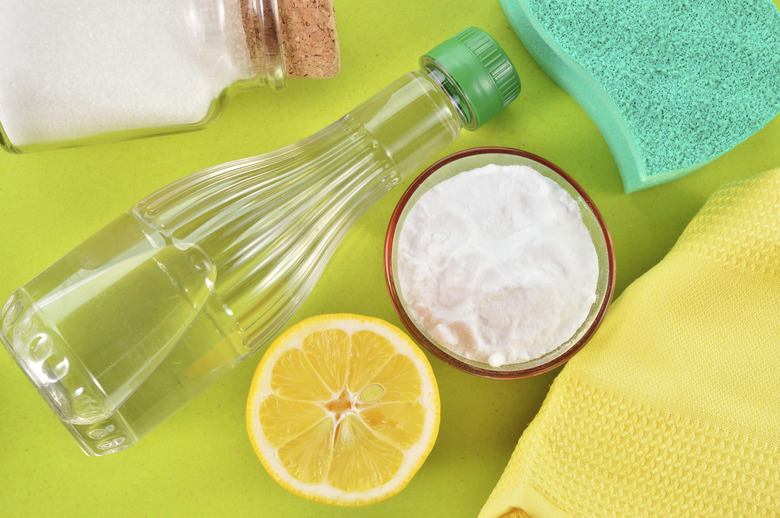Will Vinegar Ruin The Rubber Seals On Appliances?
Vinegar is the byproduct of fermented ethanol, a naturally occurring acid. Vinegar is hailed as a cleaning marvel, killing bacteria and removing grease and stains. Acids can slowly cause some synthetic rubber seals to deteriorate, however.
Vinegar 101
Vinegar 101
Vinegar is a mild acid, called acetic acid. Vinegar dissolves mineral deposits such as calcium carbonate from hard water. Because it is biodegradable and a natural product, vinegar is regarded as a safe, nontoxic product.
Where It's Compatible
Where It's Compatible
As a cleaning agent for dishwashers, washing machines and refrigerators, vinegar is an effective degreaser. Vinegar also removes odors from clothing and rinses detergent residue from dishes. Vinegar is safe for natural rubber seals and parts constructed from ethylene-propylene, silicone, fluorocarbon, virgin Teflon and butyl synthetic rubber seals.
Potential Seal Damage
Potential Seal Damage
Vinegar is often used as a rinse aid, and therefore traces of vinegar may sit on rubber seals and surfaces for extended periods of time until the appliance is used again. Becaue vinegar is an acid, it can pit the surface of some synthetic rubber seals. Full-strength vinegar should be avoided for seals made from polyacrylate, fluorosilicone and Buna-N because vinegar may weaken them with long-term use and cause eventual failure.
Follow Manufacturer Directions
Follow Manufacturer Directions
In most instances, diluted vinegar is safe for rubber seals because the effects of the acid are weakened. The appliance manufacturer may inform users to avoid certain chemicals, including vinegar, in the user manual.
